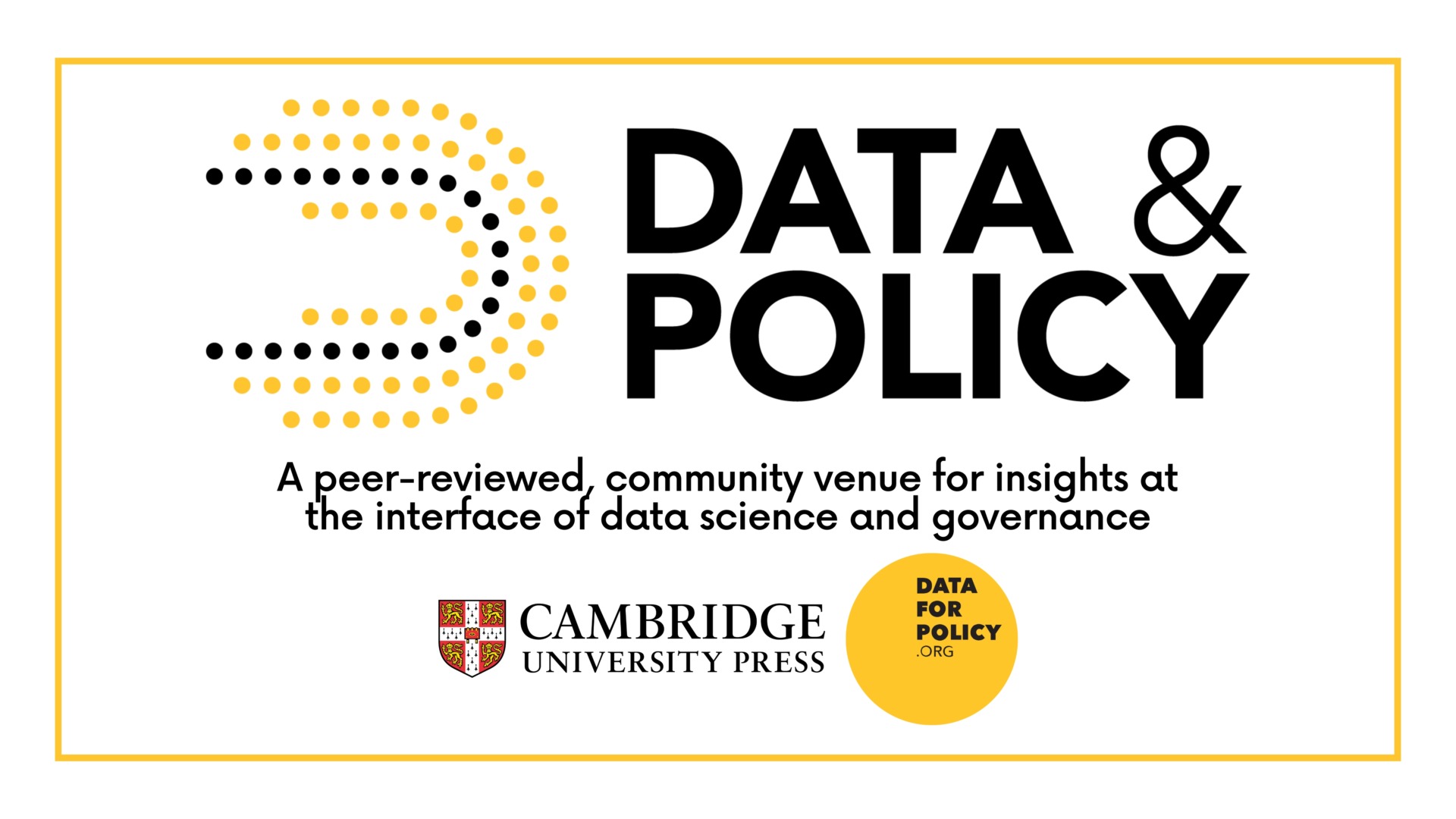Since its 2016 inception as a collaboration between Data for Policy CIC and Cambridge University Press, Data & Policy has evolved into a pioneering open-access journal, setting new standards for integrating data-driven cutting-edge research with real-world policy applications. Launched in 2019, the journal has redefined scholarly communication through innovative formats, including a 2022 peer-review system that directly links insights from the Data for Policy conference to academic publications.
Surging Growth and Global Reach
Over the past five years, the Data & Policy journal has seen exponential growth, with submissions doubling and readership expanding dramatically. In 2023 alone, the journal received 150+ submissions, culminating in 84 high-impact publications by 2024. The journal’s peer-reviewed content reflects a deliberate focus on diverse perspectives:
- 58% Research Articles (studies advancing methods, showcasing applications and outlining frameworks)
- 18% Commentaries (expert analyses on emergent policy challenges)
- 10% Data for Policy Conference Proceedings
- 10% Translational Articles (focused on exchange between data-driven research and real world practice)
- 3% Data for Policy Reports (specially commissioned review articles from our community)
- 1% Data Papers (descriptions of open datasets that have potential for research and policy re-use)
This blend of rigour and pragmatism has fuelled a 20,000+ monthly full-text viewership, with readership spanning 201 countries. The United States, UK, Germany, India, and China lead engagement, while Indonesia’s recent entry into the top 10 highlights the journal’s growing relevance in emerging economies.
Academic Rigour Meets Societal Impact
Data & Policy is present in important indexes such as Web of Science (2023 Impact Factor: 1.8), Scopus (2023 Cite Score: 3.1) and the Directory of Open Access Journals.
Its publisher is a member of the Committee on Publication Ethics and a signatory of the Declaration on Research Assessment (DORA). As such, we try to look beyond citation metrics. The journal has 36 mentions in policy documents by institutions like the WHO, UN, EU, and OECD. Recent analyses of its publications reveal significant contributions to debates on AI ethics, algorithmic governance, and climate data frameworks.
A Unique Conference-Journal Ecosystem
The journal’s integration with the Data for Policy conference creates a dynamic feedback loop between research and practice. This model ensures timely dissemination of actionable insights, supported by a global editorial network of 53 experts across six focus areas—from Digital & Data-driven Transformations in Governance to algorithmic governance.
“This community and the journal have this potential for exchange between academic research and practice” notes from Andrew Hyde, Data & Policy editor, Cambridge University Press and “I think we have a unique opportunity really to develop that further with the expertise that exists within this community.”
Democratising Access, Amplifying Voices
As an open-access title, Data & Policy is freely available for readers to access, share and re-use, but equally important is the fact that any author accepted after peer review can publish on an open-access basis irrespective of their funding situation or institution. The open-access model is not centred on individual authors paying article processing charges. Instead, Cambridge University Press has evolved a series of Transformative Agreements with institutions worldwide that support open-access publishing. Authors who don’t fall under these agreements and who don’t have funding can still publish on an open-access basis thanks to the comprehensive waiver programme that the publisher offers. Institutional support from within the Data for Policy Community also played an important role in bolstering this equitable open-access model in the early years.
The journal also promotes access to data and code underlying research, rewarding authors who deposit replication materials in open repositories with badges on articles that recognise these open practices.
The translational emphasis in the journal bridges theory and practice through initiatives like:
- Translational Committee: Curating policy briefs from peer-reviewed articles
- Live Debate Series: Including the viral 2023 discussion on Algorithmic Attention Rents
- Multichannel Outreach: 93 blog posts, LinkedIn community (5,000+ followers), and Data for Policy monthly newsletter: Pulse (5,000+ subscribers)
Future Frontiers: 2025 and Beyond
As Data & Policy recently marked its 5th anniversary, the journal is poised to:
- Launch rapid-response publications for emerging crises (e.g., AI deregulation, health data equity)
- Expand partnerships with Global South institutions
- Strengthen the conference-journal pipeline with special tracks at Data for Policy conferences, feeding into curated journal collections on critical themes like Governance of Health Data for AI Innovation
“Data & Policy is more than just a journal—it is a cornerstone of a global movement to redefine how cutting-edge data-driven research informs real-world decision-making in the public interest.” says Editor-in-Chief Dr. Zeynep Engin. “As we navigate an era of AI-enabled governance, our mission remains clear: to ensure that data serves democracy, not the other way around.”
Join the Movement
Researchers, policymakers, and practitioners are invited to engage with Data & Policy through submissions and its open-access platform. Visit here to explore groundbreaking research and help shape the future of ethical data governance. Sign up for Data & Policy content alerts here.

